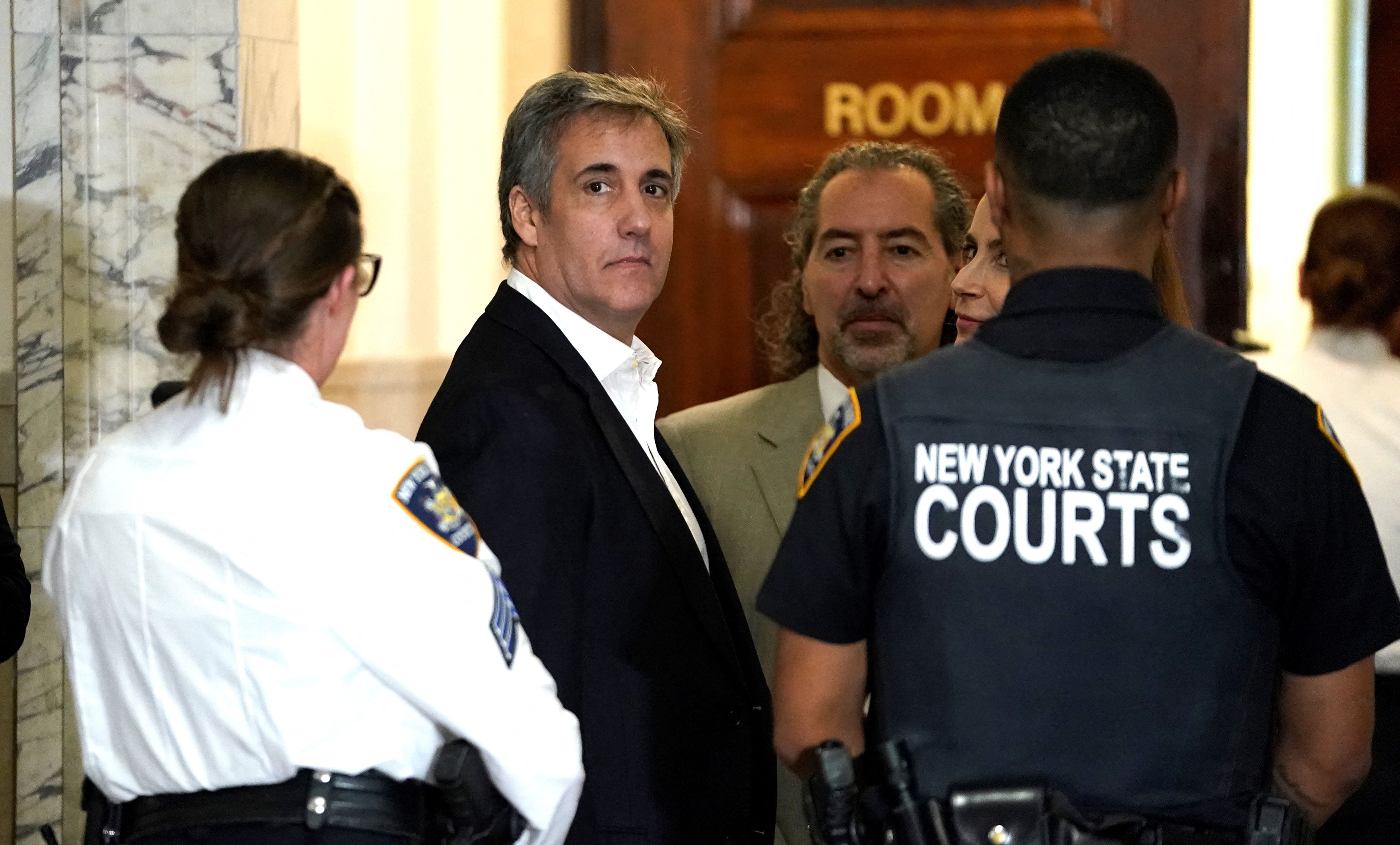Michael Cohen used AI tool to generate bogus cases in court filing
Donald Trump’s former fixer used Google Bard when searching for case precedents to end court supervision after release from prison


Michael Cohen, Donald Trump’s one-time lawyer and “fixer” used Google Bard, the artificial intelligence program, to provide his lawyer with fictitious legal citations, according to newly unsealed court papers.
The fake citations were then included in a motion filed with a Manhattan federal judge to argue for an early end to Cohen’s court supervision having been released from prison for campaign finance violation charges that he pleaded guilty to in 2018.
Cohen explained in a sworn declaration released on Friday (29 December) that he had not kept abreast of “emerging trends (and related risks) in legal technology and did not realize that Google Bard was a generative text service that, like ChatGPT, could show citations and descriptions that looked real but actually were not”.
He added that he also didn’t realise that his lawyer, David Schwartz, “would drop the cases into his submission wholesale without even confirming that they existed”.
The existence of the bogus case citations came to light in mid-December when Judge Jesse Furman asked Mr Schwartz to provide the court with copies of them having found that as far as he could tell, “none of these cases exist”.

Judge Furman wrote: “Moreover, the Court contacted the Clerk of the Court for the United States Court of Appeals for the Second Circuit, who found no record of any of the three decisions and reported that the one listed docket number ... is not a valid docket number.”
Cohen’s new lawyer, Danya Perry, also told the court that she could not find the court cases cited.
There are wider implications to this embarrassing episode for Cohen.
The former Trump confidant is expected to be the star witness in the Manhattan criminal case against the former president for the hush-money payments to adult film star Stormy Daniels.
Mr Trump’s legal team — as well as the former president himself — have long portrayed Cohen as a liar and serial fabulist, and mocked his performance on the stand for the plaintiffs in the New York state Trump Organization civil fraud trial.
The new revelation that both Cohen and his lawyer submitted fictitious citations provided by a free AI program will only add ammunition to their attacks and attempts to undermine his credibility on the witness stand.
This is not the first time this year a Manhattan court has had to deal with bogus legal citations generated by AI.
In June, two apologetic lawyers responding to an angry judge in federal court blamed ChatGPT for tricking them into including fictitious legal research in a court filing.
Attorneys Steven Schwartz and Peter LoDuca submitted a filing in a lawsuit against an airline that included references to past court cases that Mr Schwartz thought were real but were actually invented by the AI chatbot.
Mr Schwartz explained that he used the groundbreaking program as he hunted for legal precedents supporting a client’s case against the Colombian airline Avianca for an injury incurred on a 2019 flight.
Included in the relevant court decisions were Martinez v Delta Air Lines, Zicherman v Korean Air Lines, and Varghese v China Southern Airlines.
As with the Cohen case, the problem was that several of the cases weren’t real and others involved airlines that didn’t exist.
The Manhattan criminal case against Mr Trump is currently scheduled to go to trial on 25 March 2024.
Join our commenting forum
Join thought-provoking conversations, follow other Independent readers and see their replies
Comments
Bookmark popover
Removed from bookmarks